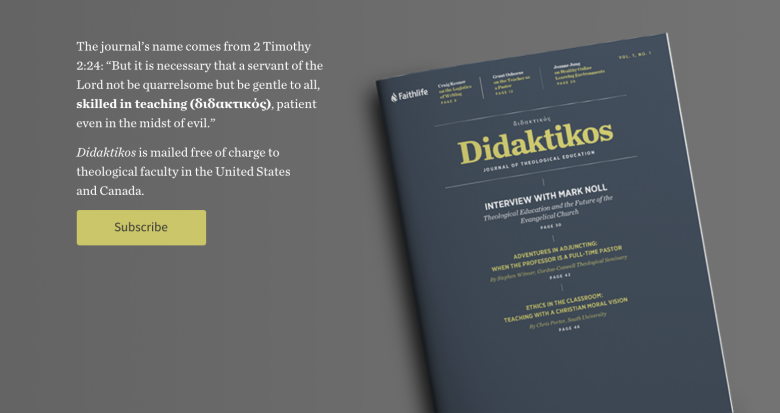
Mark L. Strauss | Bethel Seminary
This is the fourth in a series of five essays looking at the multiple hats we as professors wear, including teaching, research and writing, mentoring students, ministry in the church, and administrative roles. My goal is to stretch you a bit in areas that you may not consider your strengths.
In this essay I want to talk about the joys and benefits of involvement in Christian ministry. I was raised in a Christian home, and my father and my grandfather were both pastors. Ministry was in my DNA. Yet although I worked for a time as a college intern at our church, I didn’t feel called to pastoral ministry. I went to seminary and into teaching primarily because I loved the academic side of biblical studies.
It was during my doctoral studies in Aberdeen, Scotland, that I was first asked to preach in various local churches. After returning to the States, these preaching gifts were confirmed through frequent requests for “pulpit supply,” a series of interim pastoral roles, and requests to speak at conferences. Ever since, ministry has been a major part of my life.
Let me encourage you, as a professor, to get involved—or stay involved—in ministry, for the following reasons.
The church is why we do what we do. Jesus said, “I will build my church” (Matt 16:18). He didn’t say, I will build universities, or seminaries, or businesses, or any other institution. The primary role of any Christian organization is to serve the church. Our involvement in ministry keeps us in touch with the church’s needs and its mission in the world.
Pastoral ministry can help you stay practical. As an academic, my tendency is to teach the more technical side of my field (New Testament). This is right and proper in an academic institution. But my students benefit most when they’re able to see how the issues we’re covering relate to everyday life and the church’s mission. Consider the hot-button topic of divorce and remarriage. While my inclination in class is to focus on exegesis of biblical texts and their historical and cultural background, I find my students benefit greatly if I discuss the challenges I have faced dealing with these issues in the church. For them, this is where the rubber meets the road.
Ministry brings balance to life. In addition to providing practical input for my students, ministry involvement gives me an important change of pace, which in turn encourages creativity and renewed energy in my academic work.
If you’re looking for ways to become more active in ministry, here are two suggestions. First, if you don’t preach regularly, offer to teach a Sunday school class or lead an adult fellowship group. The church desperately needs good role models for sound exegesis, hermeneutically informed contextualization, and careful theological reflection. A college or seminary professor can raise the bar of the educational environment of the church.
Second, turn your area(s) of expertise into a practical seminar, suitable for laypeople. This can be a creative challenge but also a great blessing both for you and the church. For example, arising from my academic interest in translation theory, I developed a series of popular-level presentations to introduce laypeople to the science and art of Bible translation.
A bonus: after developing an informative and engaging seminar for a church audience, you can take that material and bring it back into the classroom to liven up your lectures. Your students will appreciate it!






Currently reading a wonderful book, “Dangerous Calling”, by Dr. Paul Tripp, Westminster Theological Seminary prof.
One of the sections titles: “Let Biblical Literacy and Theological knowledge define my maturity”
“Since seminary tends to academize the faith, making it a world of ideas to be mastered, it is quite easy for students to by into the belief that biblical maturity is about the precision of theological knowledge and the completeness of their biblical literacy. So seminary graduates , who are Bible and theology experts, tend to think of themselves as being mature.”
Great book.